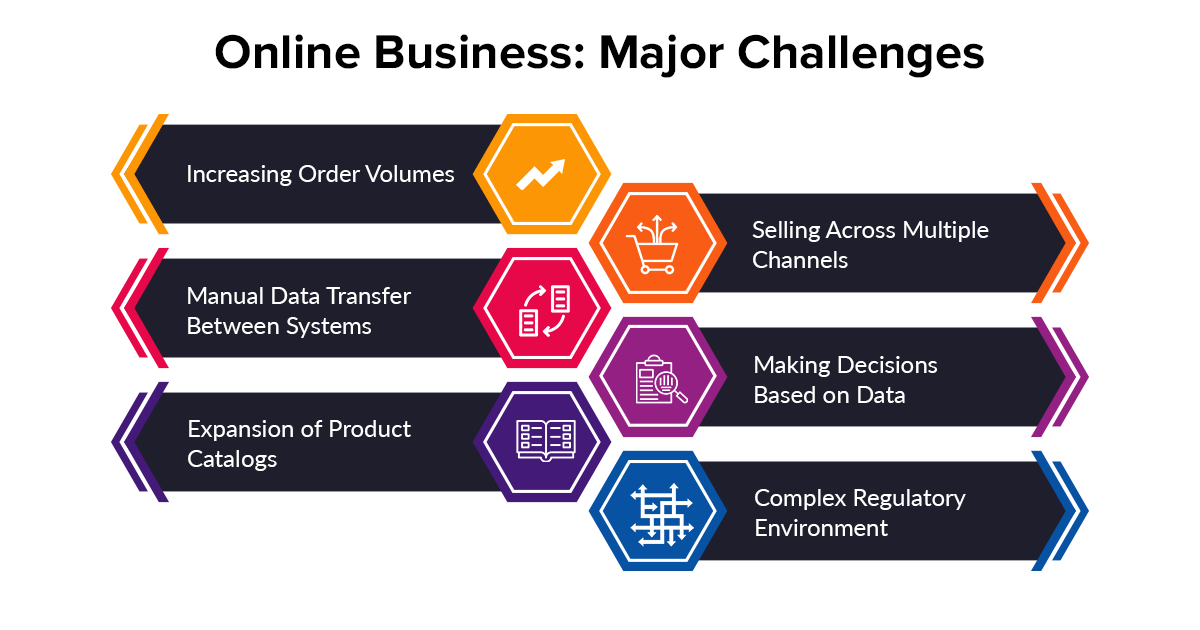Let us begin with a hypothesis. You are a business owner trying to carve out a niche in a highly competitive retail market. You have set up the business machinery rolling, ready to plunge and drive numbers aggressively; a clear plan is in place.
- A fully loaded ERP system. Check.
- A robust feature-rich fast loading and responsive website. Check.
- Evolved online and offline selling strategies. Check.
- Round-the-clock support team. Check.
Are orders flowing in? You can see that what began as a trickle has led to numbers that are slowly growing. You prepare for the increase in sales. All your analytics look promising, and you are pumped.
Now, are you counting your chickens a little too fast? Seemingly so.
With an optimistic outlook on where you are headed in terms of orders, here is what you are likely to overlook.
- While the fact remains that your applications such as ERP and eCommerce are equipped to track and store all information, do you realize that delays or inability of these systems to communicate with each other can cause undue delays in fulfilling orders?
- There is a high likelihood of orders being erroneously entered by an overstressed support staff. The consequence: A befuddled customer. Let alone the time-lapse and efforts for the reverse working needed to settle the entire transaction.
- Inventory is a variable. How would you keep a check on what has gone out of the warehouse? What has returned and what about timely methodical procurement details?

These are broad triggers that can affect the growth of your business with a host of smaller operational issues; all of which point toward a retailer’s nightmare – customer dissatisfaction. If you continue to grapple with just the number of orders, how would you progress to the next level? What becomes of ambition to scale your business?
Time to put your thinking cap on. You have been smart in choosing the right ERP system. It does bring together various functions within your business and tracks every activity carried out across these functions. Your web store in turn handles all your online orders and indeed shows tremendous potential in getting in the numbers. Although these two systems are the lifeblood of your business, are you aware of the fact that Ecommerce and ER complement each other in ways more than one and offer far more as a collaborated system?
What would fuel your growth while nurturing all that you have dreamt for your business is a customized eCommerce strategy which brings your disparate systems together and alleviates the shortcomings listed above.
What next? Conscious awareness of the performance of your business and the environment around which it operates is a must, to begin with.
Let us begin with an understanding of the challenges faced by a growing online business.

Increasing Order Volumes
Any business with the right game plan will head towards exponential growth in sales. What will have to logically follow is to have a well-stocked inventory, fool-proof fulfillment strategies, and ensure that customer experiences do not suffer no matter the volume.
Manual Data Transfer Between Systems
Manual entry of orders for all purchases that you receive puts tremendous pressure on your support team. This is not recommended in case of large order volumes. Put yourself in a scenario where your e-store is all geared up for a holiday season around the corner. Would you depend on an error-prone manual order fulfillment process or set up a process for a faster and automated order fulfillment process?
Expansion of Product Catalogs
Expansion means adding more products to your portfolio with a focus on increasing your offerings to your target audience. Accounting for inventory certainly has implications for both your ERP and eCommerce applications. Say you operate with a Magento storefront and a Dynamics GP ERP system. How to account for your inventory that gets sold? Manual updates to both ERP and eCommerce systems each time a product is added to the catalog or sold are labor and time intensive.
Selling Across Multiple Channels
Operating with just a storefront or with an online presence is now passé. Brands everywhere are looking to prop marketing pitches in just about every other available space. All these efforts while promising to deliver a seamless omnichannel buying experience to an evolved buyer. Put your thinking cap on. Omnichannel experience is about centering all your operational efforts in the direction of a uniform selling experience.
Making Decisions Based on Data
Clear, accurate, and actionable data is crucial for an intelligent and timely decision-making process. No matter if it is to procure inventory, bring on offers, or for something as serious as a budgetary plan for the financial year. Lack of an integrated environment simply means relying on manual intervention to extract data available. For instance, keeping track of receivables from a customer and tracking deadlines is important to assess the financial health of the business.
Complex Regulatory Environment
It is a challenge for businesses to strictly comply with regulatory compliance. With rules and regulations undergoing constant changes, businesses need to have a process in place so that these changes are reflected in both eCommerce and ERP systems. Remember that all of this can directly affect the growth of your bottom line. Your business has to evolve and adapt to the changes in the external environment.
The objective of every retailer in today’s market is to ensure a smooth transactional journey for its customers with an e-store that allows complete transparency into all order-related information. One that works in tandem with the ERP system in use. eCommerce is the first step in the direction of an ideal customer experience while allowing you to scale your business. Gemini Consulting & Services can devise an efficient strategy for combining your ERP system with your eCommerce. Contact us to know how you can enhance efficiency and improve customer satisfaction by combining ERP with eCommerce.
You need to identify and address the following problems to keep your business agile and growing.
- Increase in delays in order fulfillment (Order aging /Higher-order volumes). The inability to fulfill orders within the given turnaround time no matter the number of orders can spell doom despite a positive sign of growing numbers.
- Increase in operational costs. While expansion and growth put your business in a favorable direction, what about the investment in resources for the crucial operational support your plans lean on?
- Increase in losses because of order fulfillment errors. Errors in shipping address resulting in erroneous/ delayed delivery. This may also lead to returns, order cancellations, and their respective implications on the cost factor.
- Inventory management is becoming a challenge. Overselling/underselling orders is a frequent problem that plagues online retailers today; the ability to track stock in real-time is that which can back an efficient inventory management strategy.
- Customer experience is going south. Customers define the existence of your business; earn their loyalty for growth or earn their wrath for ruin! What if your inability to fulfill orders at the very first instance irks a customer? If customer complaints center around. Improper/ delayed order processing, shipping to the wrong address, disjointed communication all of this certainly ticks off all the wrong boxes.
- Delays in decision-making. A lot relies on business owners being able to make the call at the right time- while being backed by data history across all areas of operation. Accurate data analysis is that which is imperative lest crucial business decisions are based on manual assimilation of data (in most cases unreliable and inaccurate).
Continuous assessment of business operational requirements, the long-term and short-term sales/ marketing goals as well as the challenges you face is a mandate. These will help you arrive at the right ERP – eCommerce integration strategy that leads to sustained operational efficiency and superior customer experience as a result.



